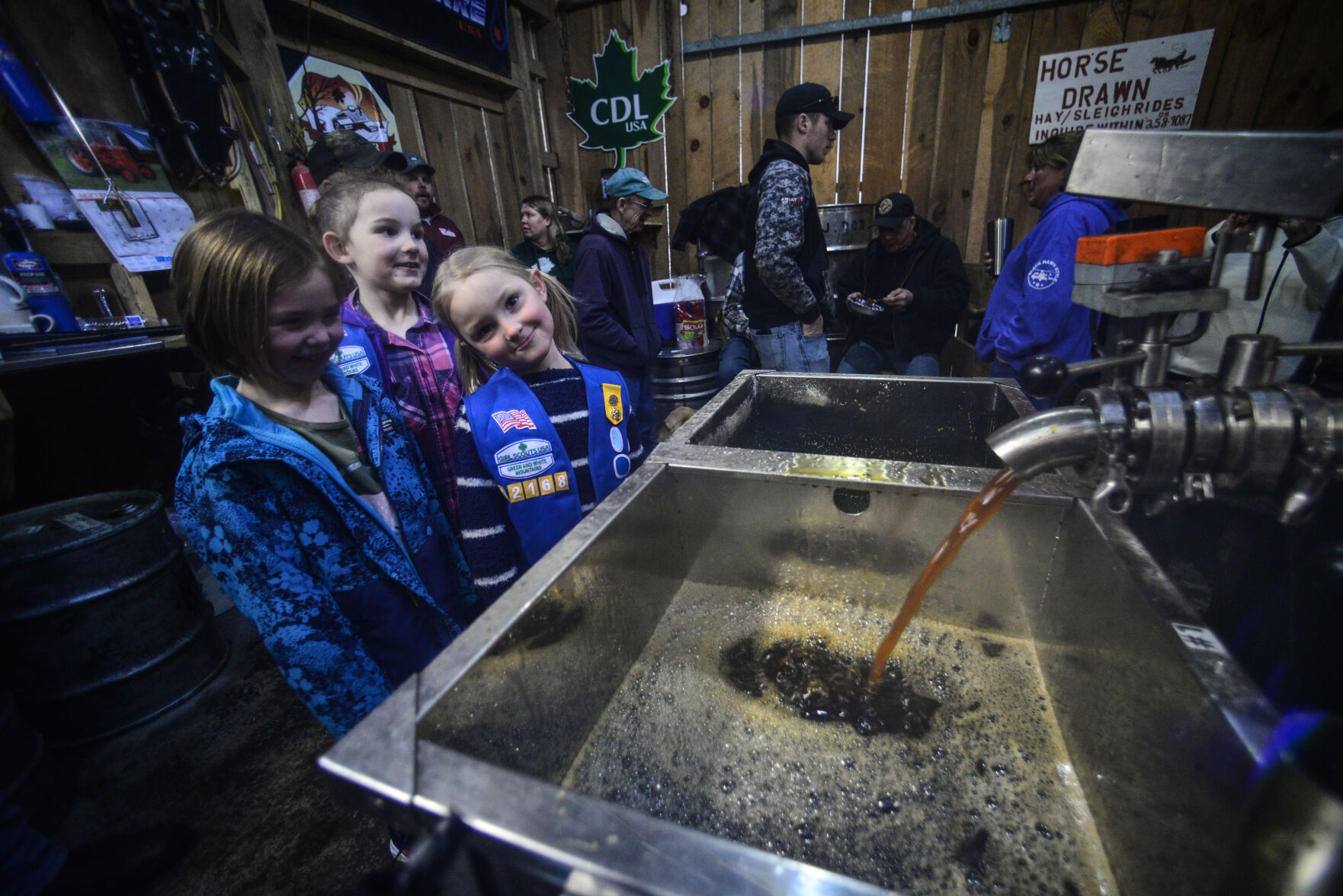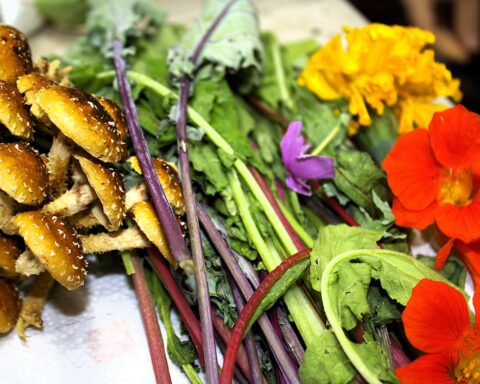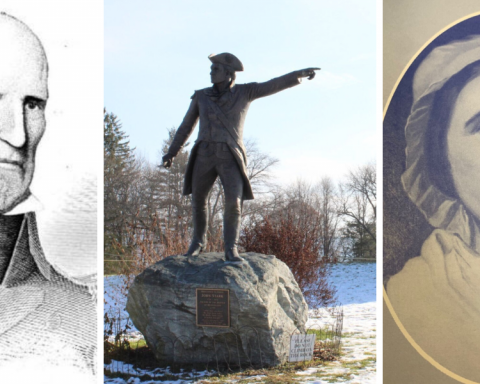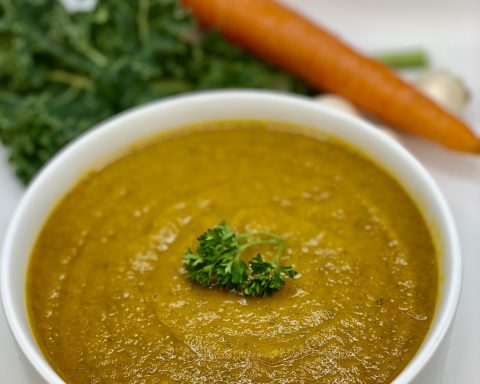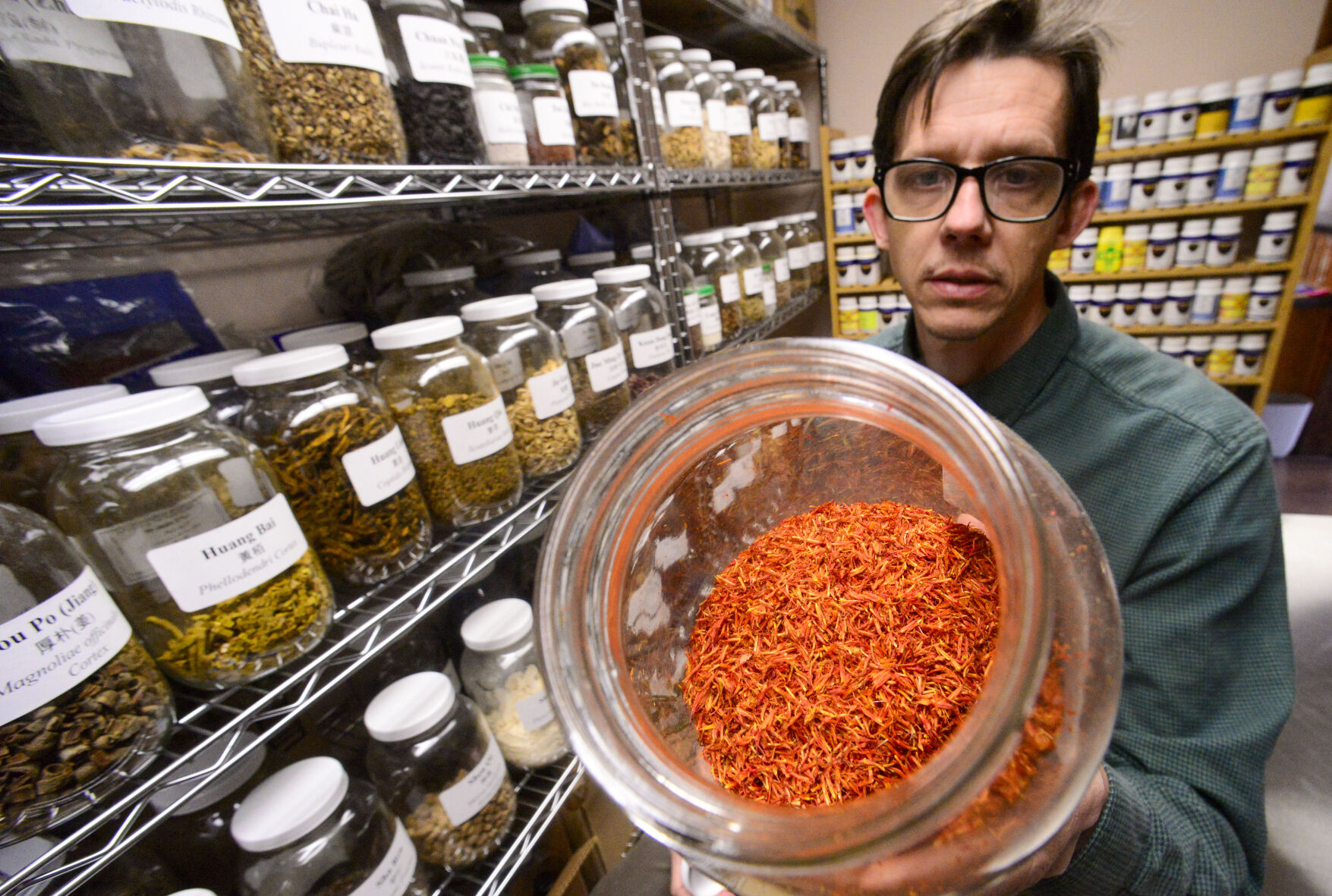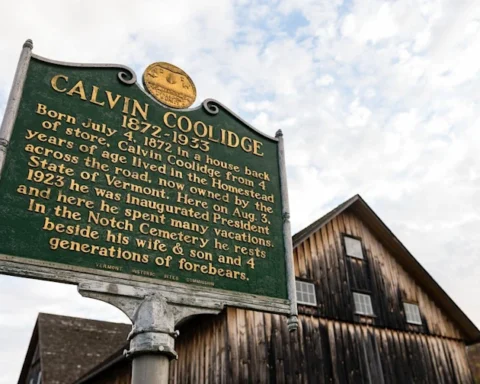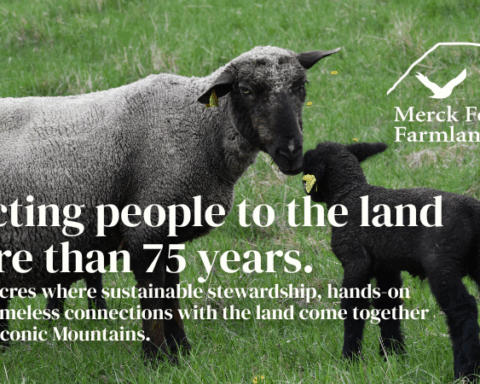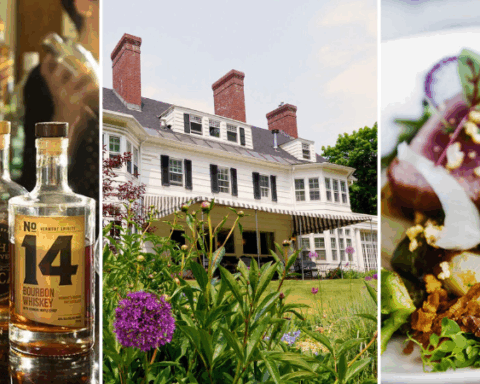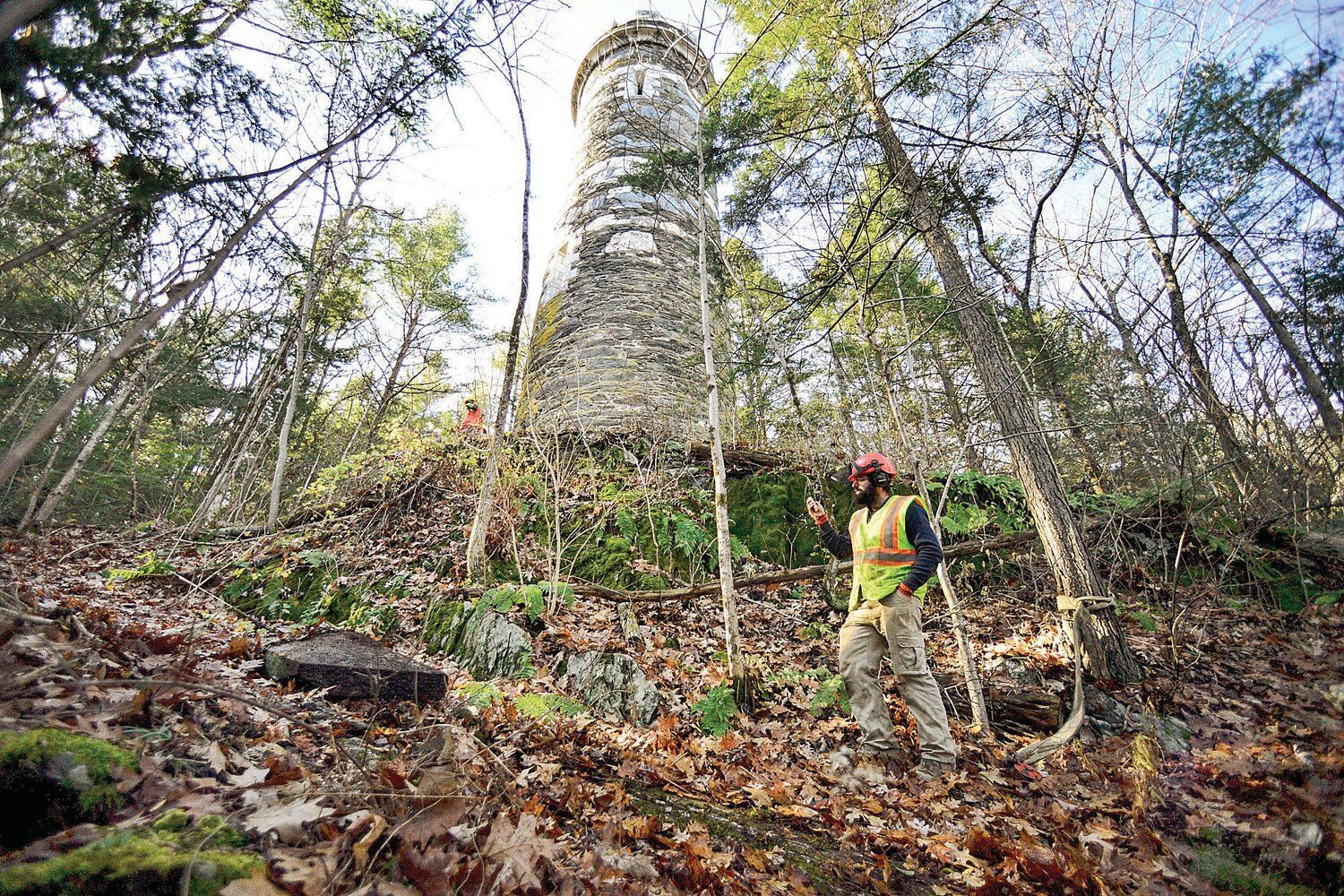By Bob Audette, Vermont Country Magazine.
When it comes to maple syrup, most folks don’t need a reason to pour on their yogurt, in their hot morning cereal or over their pancakes and French toast.
Connoisseurs of the sweet boiled sap of the maple tree may argue about the different grades and their different flavors, but its rich, caramel-like taste often has notes of vanilla and butterscotch. Others detect a toffee flavor, or the essence of fruits or herbs, but everyone knows the sweet liquid is heaven on a spoon.

But did you know that maple syrup is also good for you?
Well, as long as you don’t chug it like a Vermont State Trooper in the movie “Super Troopers.”
“It’s a good source of manganese and some of the other vitamins and minerals that you don’t get in processed sweeteners,” said Allison Hope, executive director of the Vermont Maple Sugar Makers’ Association.
Studies have revealed maple syrup contains numerous phenolic compounds, which studies have shown are powerful antioxidants that “capture” free radicals that damage body tissue and have been linked to cancer. Other sources of phenolic compounds include blueberries, tea, red wine and flaxseed.
Maple syrup also contains an abundance of life-sustaining minerals, including calcium, potassium and magnesium.
A study published in the journal Nutrition Research concluded maple syrup doesn’t cause sharp spikes in blood sugar levels, a benefit for diabetics or those trying to control their blood sugar levels.
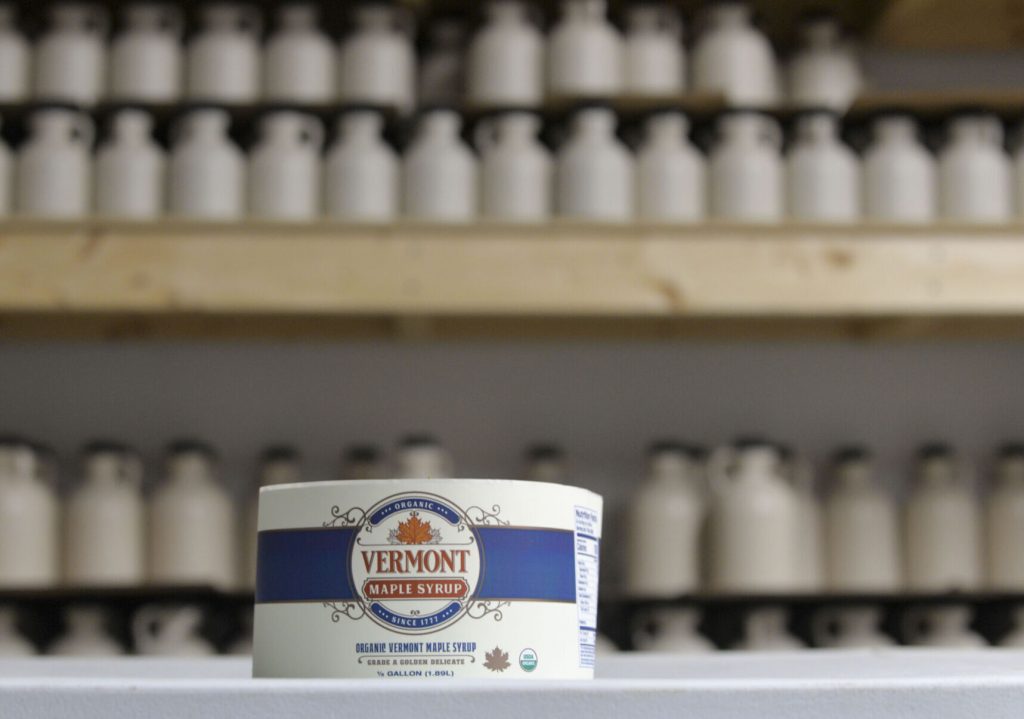
Another study, published in the journal Metabolism, concluded maple syrup may boost immunity by increasing the production of white blood cells.
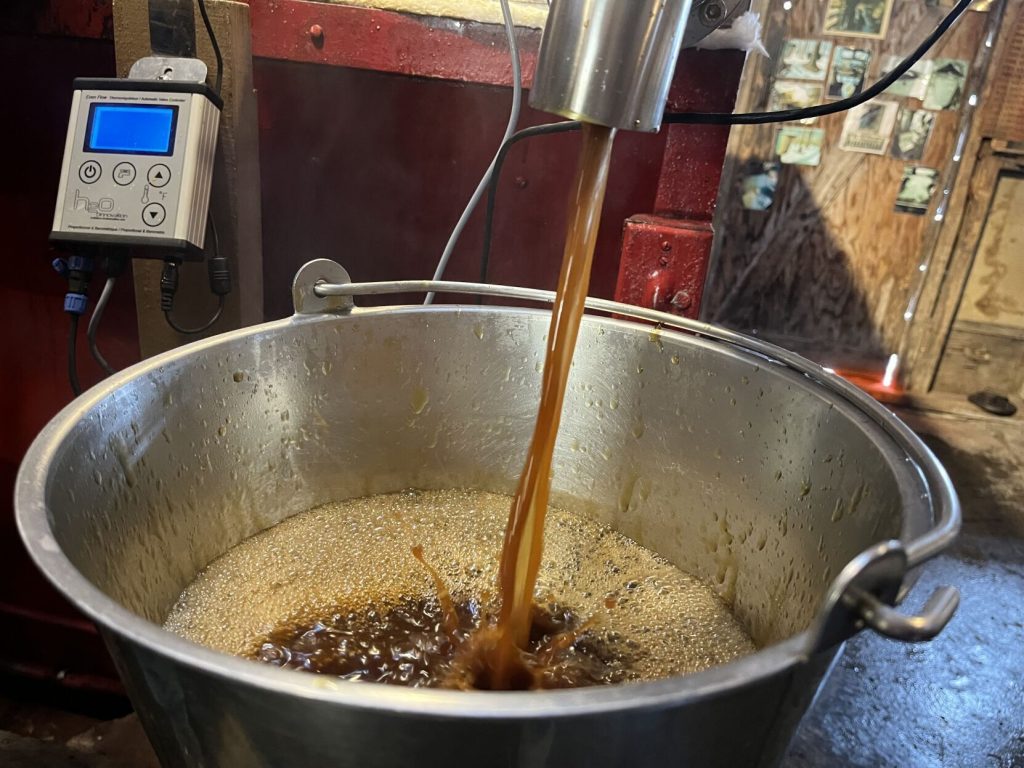
“Current scientific evidence indicates that phenolic compounds play a key role in the body’s defense, protecting it from damage caused by reactive oxygen species known to be involved in the genesis of various pathologies, cardiovascular, oncological, autoimmune, degenerative, etc.,” states a study published in 2022 by the National Library of Medicine. “[T]he potential of maple syrup … as a source of nutrients and bioactive compounds is immense and deserves to be highlighted.”
Other components of maple syrup include minerals and trace elements, amino acids, other carbohydrates, organic acids, phenolic compounds, sulfur compounds and pyrazines.
While Hope wouldn’t go as far as saying that Vermont maple syrup is better for you than other maple syrups, she did not hesitate to point out that Vermont maple syrup, by state requirements, has a higher minimum density.
“Like anything else that comes from the earth, there’s some sort of terroir that goes along with it in terms of the soil and the actual trees,” said Hope. “But if you’re following Vermont student standards, you’re making just a titch thicker syrup.”
It’s not only nutrient-dense, said Hope, but is also healthy for the environment and the state’s economy.
“Maple sugaring supports forested landscape and Vermont farmers,” she said. “And now, more than ever, a healthy, forested landscape is incredibly important to the changes in climate that we’re seeing.”

Bob Audette a cranky old white guy, is experiencing the world anew under the tutelage of an 11-year-old forest sprite. He’s been writing for the Brattleboro Reformer for nearly two decades.
